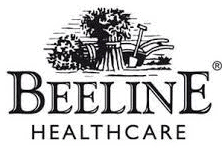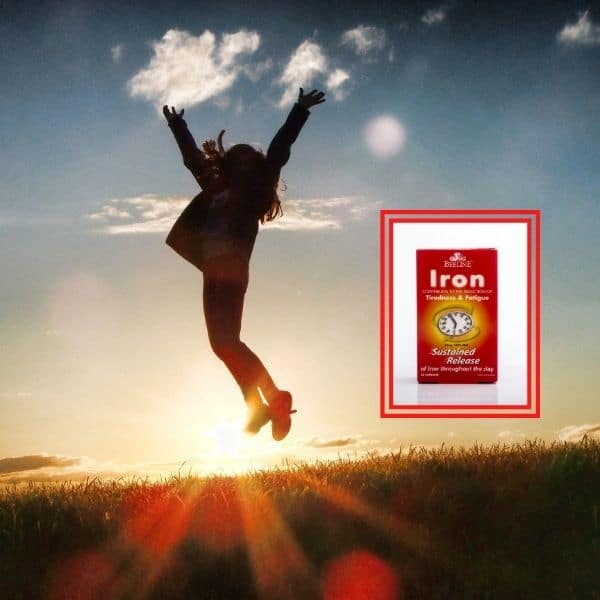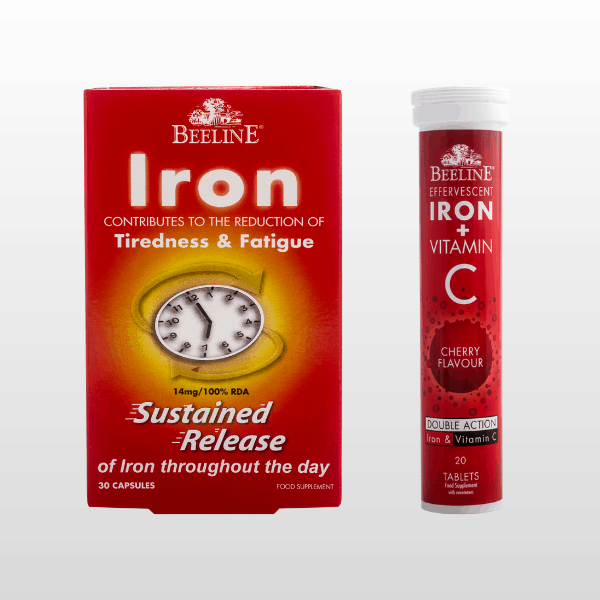Iron Benefits, Sources and Iron Deficiency
The benefits of iron include producing red blood cells to carry oxygen around the body helping combat fatigue and supporting cognitive function. Find out the key sources and benefits of this essential mineral, along with the symptoms of iron deficiency.
Iron is an essential mineral that is vital for producing red blood cells, which carry oxygen around the body. It helps combat fatigue while supporting cognitive function, the immune system, physical performance and development of the body. A lack of iron results in tiredness and can lead to iron deficiency anemia.
Why is Iron Important?
Iron is an essential mineral that helps maintain healthy blood to carry oxygen around the body. It is needed to produce healthy red blood cells and for proper hemoglobin function. Hemoglobin is the protein inside red blood cells that carries oxygen from our lungs around to all parts of our bodies. It transfers oxygen in the blood to our tissues and organs, and then carries carbon dioxide from our organs and tissues back to the lungs. This helps the body to function properly providing oxygen to the muscles and brain to support energy levels, as well as physical and mental performance.
Iron helps combat fatigue, while supporting good cognitive function and the immune system. It is also needed for body growth and development.
A lack of iron can lead to iron deficiency anemia. With insufficient iron, there would not be enough red blood cells to carry oxygen around the body, which would result in fatigue and poor wellbeing.
Benefits of Iron
The benefits of iron include:
- Reduces tiredness and fatigue.
- Supports good energy levels.
- Contributes to the normal formation of red blood cells and haemoglobin function, which carries oxygen around the body.
- Improves both mental and physical performance.
- Helps normal cognitive function supporting attention span, decision making, reasoning, learning and intelligence.
- Assists with many vital functions within the body.
- Helps the normal function of the immune system.
- Assists with a healthy pregnancy.
- Supports muscle growth and body development.
- Helps with athletic performance.
- Contributes to good health and vitality.
- Supports vaccine efficacy.
Iron Deficiency
Iron deficiency occurs due to inadequate iron intake, where the body does not absorb enough iron for its nutritional requirements. The most common causes of iron deficiency is not eating enough iron within the diet and not taking supplements.
As an essential mineral, iron is required for hemoglobin and to produce red blood cells to carry oxygen around the body. Without enough hemoglobin, our bodies including our muscles and tissues will not get enough oxygen and cannot function properly. This can lead to iron deficiency anemia.
Iron Deficiency Anemia
Iron deficiency anemia is characterised by the blood lacking enough healthy red blood cells to carry oxygen to the body’s tissues and muscles. This can leave you feeling weak, tired, short of breath and can lead to more serious health issues. Iron supplements can be used to help treat iron deficiency anemia.
Symptoms of Iron Deficiency
Iron is vital for good nutrition and wellbeing. The symptoms of iron deficiency include:
- Fatigue.
- Weakness.
- Shortness of breath.
- Lack of concentration.
- Irritability.
- Pale skin.
- Heart palpitations.
- Pale skin.
- Dizziness.
- Headaches.
- Hair loss.
- Dry skin.
- Poor physical and mental performance.
Vaccination
New research highlights the critical role of iron for vaccine efficacy, which is discussed in our recent article. The study shows that iron deficiency has been linked to impaired immunity from vaccines.
Iron Absorption
Vitamin C increases the absorption of iron within our bodies, which can help prevent iron deficiency. Adding foods high in vitamin C to the diet can help to enhance iron absorption. Foods rich in vitamin C include oranges, broccoli, spinach and kiwi fruit.
Sources of Iron
The sources of iron are the food in our diet and dietary supplements.
1. Food
Our bodies regularly absorb iron from the food we eat. To avoid iron deficiency, it is important to eat a healthy diet including foods that are rich in iron. These foods include:
- Red meat, pork and poultry including beef, chicken and turkey.
- Seafood, fish and shellfish including tuna, mussels, clams and oysters.
- Spinach and other green leafy vegetables such as broccoli.
- Liver and organ meats such as kidneys, brain and heart.
- Beans, such as red kidney beans, edamame beans and chickpeas.
- Nuts such as peanuts, almonds, walnuts, cashew nuts, hazelnuts and pine nuts.
- Dried fruit such as raisins, dates and apricots.
- Fortified breakfast cereals such as Weetabix, Rice Krispies and Cornflakes.
- Eggs.
- Brown rice, pasta and whole meal bread.
- Quinoa.
- Legumes.
- Soy bean flour.
- Tofu.
- Dark chocolate.
2. Dietary Iron Supplements
Dietary supplements are another key source of iron. Beeline Healthcare have a range of iron supplements to provide the recommended daily allowance. There is a choice of iron capsules or effervescent tablets. Beeline iron supplements help to reduce fatigue, combat iron deficiency, support normal cognitive function and contribute to the normal formation of red blood cells.
Preventing Iron Deficiency
Eating sufficient levels of iron within the diet and taking daily iron supplements can help prevent iron deficiency.
Who Should Take Iron Supplements?
Iron supplements can be taken by adults and children over 12 years of age. Certain groups of people are more likely than others to be at risk of iron deficiency. These include:
- Pregnant women’s iron needs are higher during pregnancy.
- Women with heavy menstrual bleeding.
- Infants and young children experience rapid growth requiring sufficient iron levels.
- Cancer patients such as those with colon cancer have higher rates of iron deficiency.
- People diagnosed with gastrointestinal disorders including ulcerative colitis, celiac disease and Crohn’s disease have a higher risk of iron deficiency due to dietary restrictions.
- People with heart failure are more likely to have insufficient levels of iron.
- Frequent blood donors.
Iron Dosage
According to the NHS, the recommended amount of iron needed is:
- 8.7mg a day for men over 18.
- 14.8mg a day for women aged 19 to 50.
- 8.7mg a day for women over 50.
Beeline iron supplements provide the recommended daily intake.
Questions Iron
- What happens if I take too much iron?
Taking too much iron can cause constipation, feeling sick and stomach pain.
- What are some nutritional sources of iron?Good sources of iron include dietary supplements and foods rich in iron. These include:
- Red meat, pork and poultry.
- Seafood, fish and shellfish.
- Spinach and broccoli.
- Liver and organ meats.
- Kidney beans, edamame beans and chickpeas.
- Eggs, quinoa, legumes, nuts and dried fruit.
- Fortified breakfast cereals.
- Soy bean flour.
- Tofu.
- Dark chocolate.
- What are the benefits of iron?The benefits of iron include:
- Reduces tiredness and fatigue.
- Contributes to the normal formation of red blood cells and haemoglobin function, to carry oxygen around the body to support body function.
- Supports normal cognitive function.
- Improves physical performance, while contributing to muscle growth and body development.
- Supports the immune system.
- Assists with a healthy pregnancy.
- Supports vaccine efficacy.


